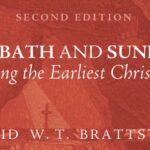This question is hard to answer. We often define happiness in different ways, and we all have different ideas about how a person becomes and stays happy. For most people, happiness is equated to: 1) great success, 2) an abundance of material possessions, and/or 3) physical and emotional pleasure.
Many adults believe that a successful career, retirement account, late model car, big house, and a lovely spouse is the perfect formula for happiness. This kind of happiness is directly linked to circumstances and situations. On the other hand, teenagers often think that starting on the ball team, wearing Vans instead of Walmart shoes, having parents who don’t fight, and finding a perfect boy/girlfriend is the path to happiness. But, like the adults described above, this kind of happiness is directly linked to circumstances and situations.
So, does God want me happy? If the kind of happiness you’re talking about rises and falls on your circumstances and your situation in life, then, honestly, the short answer is . . . drum roll . . . no. God is not concerned about this kind of happiness.
Definitely a hard pill to swallow. Let’s look at an example from Scripture.
A Farmer with First World Probs
In Luke 12, Jesus tells a story about a rich farmer who encountered a major problem (or so he thought). The rich farmer’s problem? He had an unusually huge harvest one year—so a rich man got richer—and he had no place to store all of his riches. Talk about #firstworldprobs, right?
Before we go on, understand that there is nothing wrong with having money and nice things. Scripture makes it clear that there is nothing sinful about having things; the problem is when we love those things (1 Timothy 6:10). You could actually take this a step further: it is sinful when we find our happiness, our identity, and our worth in things. Back to the rich guy in Luke 12.
So, this rich farmer, in the midst of his riches, comes to this conclusion: “My friend, you have enough stored away for years to come. Now take it easy! Eat, drink, and be merry!” Remember how we said that for most people, happiness is equated to great success, an abundance of material possessions, and physical and emotional pleasure. This guy had it all! He clearly had a successful farming career and such abundance that he had to build bigger barns. His intention to be merry indicates that he had emotional pleasure, and his eating and drinking indicates that he indulged in physical pleasure.
But God steps down and judges this man declaring, “Fool! This night your soul is required of you.” Jesus concludes the parable with this statement: “So is the one who lays up treasure for himself and is not rich toward God.”
If your happiness is rooted in circumstances, then God’s reply for you is the same as it was for the rich man.
God’s Desire for You
If God is not concerned that I have the kind of happiness that has been described so far, then what does God desire for me? Foremost, without question, God’s desire for you is holiness. Paul explains that God laid out this path for every believer, to be “holy and blameless” in Christ, and He did so before the world was even created (Eph. 1:4)! At the end of this age, Christ will present his Church as a bride that is “holy and without blemish” (Eph. 5:27).
Peter teaches that believers are “a holy priesthood” who “offer spiritual sacrifices acceptable to God through Jesus Christ” (1 Pet. 2:5), and who “proclaim the excellencies of him who called you out of darkness into his marvelous light” (1 Pet. 2:9). What a beautiful, glorious plan God has in store for everyone that is in Christ!
In the context of this teaching on holiness, Peter reveals a very important truth: hardships lead to holiness, and this a cause for rejoicing. In Peter’s own words, “In this you rejoice, though now for a little while, if necessary, you have been grieved by various trials, so that the tested genuineness of your faith—more precious than gold that perishes though it is tested by fire—may be found to result in praise and glory and honor at the revelation of Jesus Christ” (1 Peter 1:6-7).
This is very different from the Rich Farmer’s philosophy:
- Rich Farmer = Life is hard > seek pleasure > avoid trials > be happy
- Apostle Peter = Life is hard > seek God > rejoice in trial > be holy > be happy
Wait. Can I Change My Answer?
With this theme of holiness in mind, let’s try this again. Does God want me to be happy? If the kind of happiness that you’re talking about is the kind of happiness that is found only in a relationship with God, then YES, God wants you to be happy. He wants you to become holy as you seek Him—the Holy God—and in doing so, find fulfillment, contentment, peace, joy, and satisfaction.
In the verses above, Peter says, “In this you rejoice.” That sounds a lot like happiness to me. The psalmist exclaims, “You make known to me the path of life; in your presence there is fullness of joy; at your right hand are pleasures forevermore” (Psalm 37:4). Jesus told his disciples in the hours before He went to the cross that his desire for them was that “my joy may be in you, and that your joy may be full” (John 15:11). He also told them, “So also you have sorrow now, but I will see you again, and your hearts will rejoice, and no one will take your joy from you” (John 16:22).
Does God Want Me to Be Happy?
- YES! But He wants your happiness to be rooted in Him—the Faithful One who never changes—rather than your circumstances and situations which are always changing.
- YES! But He wants it to be the kind of happiness that rejoices always, even in trials.
- YES! But He wants your happiness to be the product of your holiness.
- YES! But He wants you to seek Him first and find your fulfillment in Him, not in the things of this earth.







